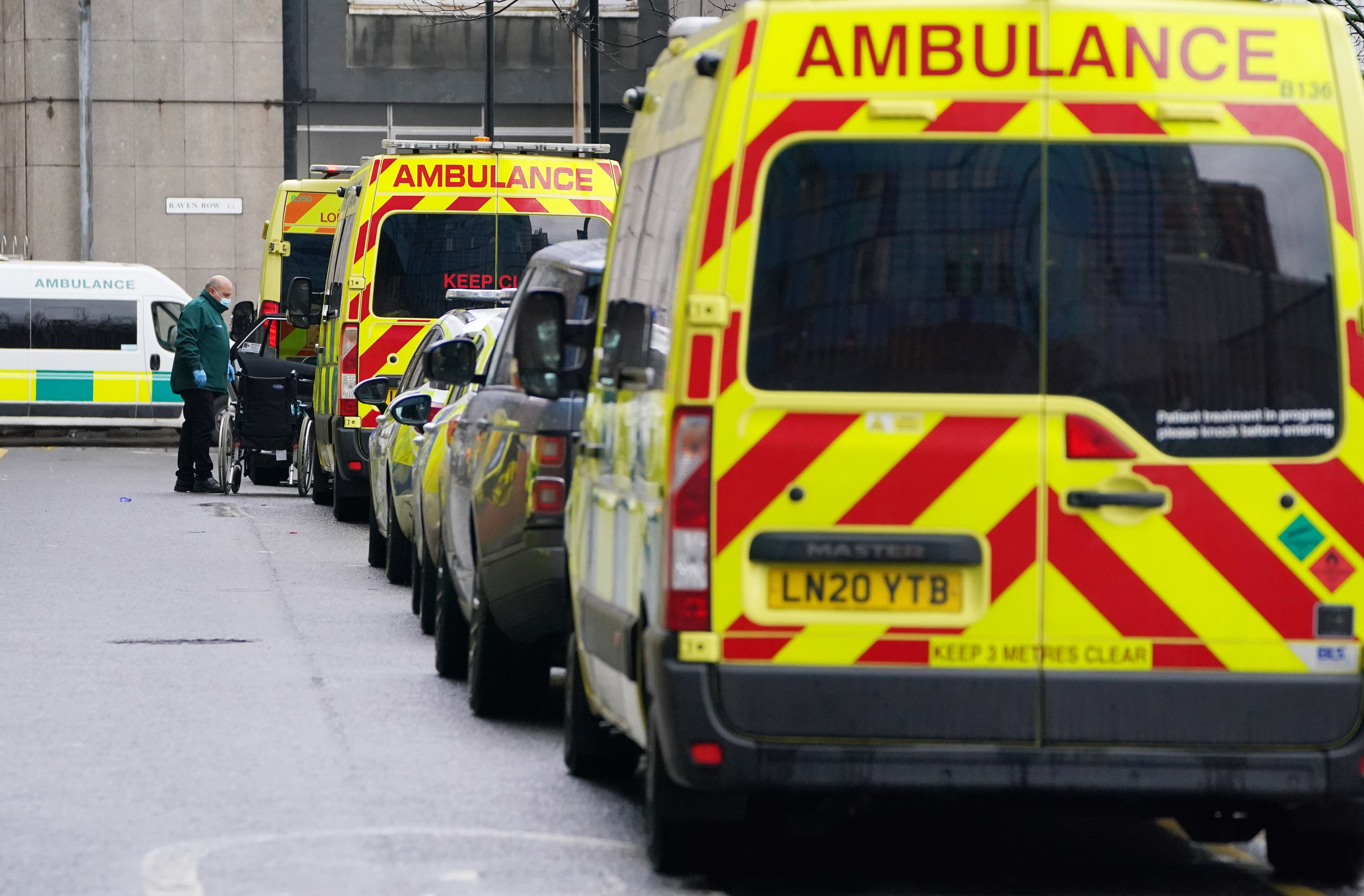Rise in Covid-19 hospital patients in England levels off
The impact of the current wave of Covid-19 may be starting to ease.

Your support helps us to tell the story
From reproductive rights to climate change to Big Tech, The Independent is on the ground when the story is developing. Whether it's investigating the financials of Elon Musk's pro-Trump PAC or producing our latest documentary, 'The A Word', which shines a light on the American women fighting for reproductive rights, we know how important it is to parse out the facts from the messaging.
At such a critical moment in US history, we need reporters on the ground. Your donation allows us to keep sending journalists to speak to both sides of the story.
The Independent is trusted by Americans across the entire political spectrum. And unlike many other quality news outlets, we choose not to lock Americans out of our reporting and analysis with paywalls. We believe quality journalism should be available to everyone, paid for by those who can afford it.
Your support makes all the difference.The latest rise in the number of hospital patients in England testing positive for Covid-19 looks to have come to a halt, with figures levelling off slightly below the previous peak.
A total of 13,375 people with coronavirus were in hospital as of 8am on July 21, down 3% on the previous week.
It is the second day in a row the total has shown a week-on-week fall.
The rate of increase has been slowing steadily since the start of July, after rising as high as 39%.
The figures suggest the impact of the current wave of Covid-19 may be starting to ease – and that patient levels will not reach the sort of levels seen during the surge in infections earlier this year.
A total of 16,600 people were in hospital with coronavirus in England at the peak of the Omicron BA.2 wave in April, according to NHS data.
The current wave is being driven by the subvariants Omicron BA.4 and BA.5 and has seen patient numbers climb through much of June and the first half of July, reaching a high of 14,044 on July 18.
Around six in 10 hospital patients who test positive for Covid-19 are being treated primarily for something else, rather than the virus.
But they need to be kept isolated from those patients who do not have Covid, putting extra pressure on hospital staff who are already struggling to clear a record backlog of treatment.
Hospital admissions of people testing positive for coronavirus have also slowed down.
The rate of admissions stood at 18.3 per 100,000 people in the week ending July 17, according to the UK Health Security Agency (UKHSA).
This is broadly unchanged on 18.0 per 100,000 in the previous week and follows five successive weekly increases.
Admission rates remain highest among people aged 85 and over, at 163.8 per 100,000 – but this is down slightly week-on-week from 165.6.
Dr Gayatri Amirthalingam, UKHSA deputy director of public health programmes, said: “The increase in Covid-19 case rates and hospitalisations continues to show signs of slowing but there is no room to be complacent and people aged 75 and over remain at particular risk of severe disease if they are not up to date with their vaccinations.
“We urge all those who are eligible for a booster to take up the offer as soon as possible. Anyone who has not yet had their first or second dose, should also get up to date with their jabs to give themselves the best possible protection.”
All over-75s in the UK were offered a “spring booster” earlier this year, available at least three months after their most recent jab, to ensure they continue to receive the maximum possible protection.
Figures published by the UKHSA show that 15% of over-75s have not received any doses of Covid-19 vaccine in the last six months, putting them more at risk of serious illness.
The latest estimates of the number of people infected with Covid-19 across the UK will be published on Friday by the Office for National Statistics.
A total of 3.5 million people in private households were likely to have had the virus in the week to July 6, the highest estimates since mid-April but still below the record of high of 4.9 million at the peak of the BA.2 wave.